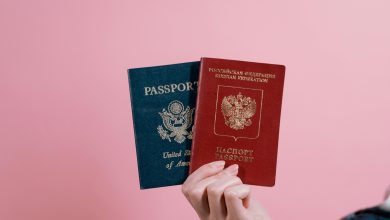How to Get MUI Halal Certificate

How to Get an MUI Halal Certificate: A Step-by-Step Guide
If you’re a business operating in Indonesia—or planning to enter the Indonesian market—and your products are related to food, beverages, cosmetics, or pharmaceuticals, obtaining a halal certification from the Majelis Ulama Indonesia (MUI) is essential. This certificate assures Muslim consumers that your product complies with Islamic law.
Here’s a clear and straightforward guide on how to get your MUI Halal Certificate.
What Is an MUI Halal Certificate?
The MUI Halal Certificate is an official statement that a product meets halal requirements as outlined by Islamic law. It is issued by the MUI, the Indonesian Ulema Council, and is required for many types of products in Indonesia.
Who Needs It?
You need an MUI halal certificate if you produce:
-
Food or beverages
-
Food ingredients
-
Cosmetics
-
Pharmaceuticals
-
Slaughterhouse products or meat processing
-
Services involving food handling
Step-by-Step Process to Get MUI Halal Certification
1. Prepare the Necessary Documents
You’ll need to gather and prepare the following:
-
Business license (NIB)
-
List of products and materials used
-
Product flow or production process
-
Halal policy statement
-
Certification of halal raw materials (if already available)
-
Facility details
2. Register with BPJPH
Start by registering your business with BPJPH (Badan Penyelenggara Jaminan Produk Halal), the Halal Product Assurance Agency under the Ministry of Religious Affairs. You can register through their official online system.
3. Appoint an Internal Halal Assurance Team
Your business must establish an internal Halal Assurance System (SJPH) team. This team will oversee internal compliance with halal standards and be responsible for implementing necessary documentation and practices.
4. Choose a Halal Inspection Agency (LPH)
After registration, you need to work with an LPH (Lembaga Pemeriksa Halal), an independent inspection agency accredited by BPJPH. They will conduct a thorough audit of your materials, processes, and facilities.
5. Audit and Field Inspection
The LPH team will visit your facility, check raw materials, manufacturing process, cleanliness, and employee practices. Make sure your facility complies with hygiene and halal standards.
6. Fatwa Session by MUI
The inspection results will be sent to MUI. They will hold a fatwa session to decide whether the product is halal based on the findings. If everything meets the criteria, they will issue a halal ruling.
7. Halal Certificate Issuance
Once MUI approves, BPJPH will officially issue your Halal Certificate, valid for four years. However, you must maintain compliance throughout that period and undergo periodic monitoring.
Tips to Make the Process Smoother
-
Start documentation early.
-
Train your staff on halal principles.
-
Make sure your ingredients are traceable.
-
Work with a halal consultant if you’re unsure of any step.
Final Thoughts
Getting an MUI Halal Certificate might seem like a long process, but it’s a critical investment for gaining trust and entering a broader market in Indonesia. With proper planning, good documentation, and the right team, the process becomes manageable and beneficial in the long run.



